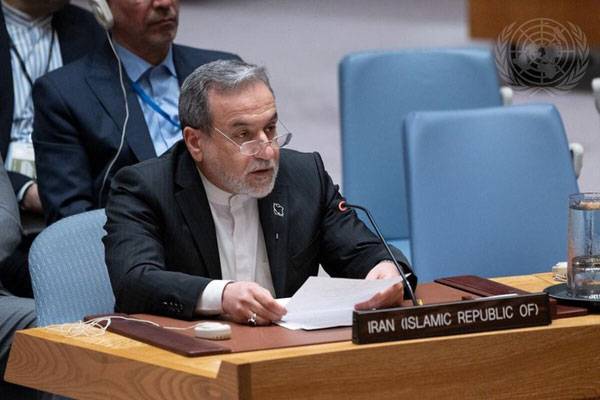
South Asia is the world’s most populous region and has deep cultural roots and historical heritage. While this connection to the past is a strength in some areas, it can limit progress in modern sectors, like gambling.
While other countries outside the region have readily adapted laws to reflect the new online landscape, South Asia is still playing catch-up. Yet in some instances, certain countries aren’t playing catch-up at all—they’re simply disregarding the reality of online gambling altogether. Their mentality reflects an ‘if it’s not a visible problem, then why bother?’ approach.
However, as online wagering becomes more pervasive and we see an increase in economic pressure and a proliferation of offshore casinos that muddy the waters, these countries will be forced to confront their legal frameworks.
When Digital Games of Chance Took Over the World
Let’s just say it makes sense that South Asia hasn’t paid much attention to these laws. After all, while gambling continued to be a major evolving sector elsewhere, it still had the stigma of being an underground, shady activity. Add to this the fact that many of these countries had more pressing issues to deal with, like poverty and political instability, and the industry became an even lesser priority.
In contrast, Europe and North America, for example, went through a legal and social evolution. In Europe and North America, it evolved from niche activity to a mainstream industry, driven by legalisation, lotteries, and later, the rise of online platforms. People wanted convenience, and they got it with basic browser-based poker rooms and eventually, mobile apps. Today, online gambling is a multi-billion-dollar industry. But while many other regions moved on to gradual acceptance and regulation, South Asia stayed stuck in resistance and restriction.
What Does the Landscape Look Like in South Asia?
Of the eight countries that make up South Asia, gambling is only legal in two. This doesn’t include the legal play allowed for non-residents and foreign nationals in Nepal. Sri Lanka has a handful of land-based options, including big international names like Bally’s and the Bellagio. Meanwhile, India’s rules surrounding gambling are a little more complex. While there are casinos in the states of Goa, Sikkim, and Daman, other areas prohibit land-based gaming in totality.
In February 2025, Sri Lanka approved the creation of a regulatory body for its growing gaming industry—its first formal move toward a structured framework. India, on the other hand, has no such national effort. Its laws vary by state, similar to the United States, with each state having the authority to create its own rules.
While there are three states with licensed brick-and-mortar casinos, gambling is banned in all the others. In even cloudier territory, online activity is still finding its footing. No federal laws prohibit the activity, although a few explicit state laws exist against online betting. Because lawmakers haven’t gotten around to developing any real legislation, residents can discover plenty of top casino sites for Indian players. Even in Sri Lanka, where gambling laws are more clearly defined, online gaming sits in a legal grey area.
The other six countries in the region—Afghanistan, Bangladesh, Bhutan, the Maldives, Nepal, and Pakistan—have outlawed games of chance. That means there are no licensed options, online gaming apps, sportsbooks, racetracks, or any formal infrastructure to support this kind of activity.
The Challenges in Regulating The Laws in South Asia
As technology and gambling supporters have moved forward, there’s a gap between what the law says and what people are actually striving to do. Many residents living in South Asia certainly want to hop on the bandwagon and engage in these activities under a clear legal umbrella. So why is it that South Asia as a whole hasn’t made any significant strides in changing or creating laws, especially when it comes to the online space? The reasons are multifaceted.
The most undeniable factor is that South Asia is a heavily religious place. With religion essentially defining culture in places like Afghanistan and Pakistan, thanks to the implementation of Sharia Law, it’s highly unlikely that gambling will ever become legal. Gambling is forbidden and sinful according to the Quran, deeming it a social disease that destroys lives. Even in South Asian countries that don’t follow Sharia Law, the dominating religions are typically Islam, Hinduism, or Buddhism, which all consider games played for money in the same vein as drinking and smoking—morally problematic.
Then there’s the sheer fact that many policymakers in the region have not fully grasped the sensation of the online gaming boom. It’s a lot simpler to tackle in-person laws because they’re tangible and easier to regulate within the country’s borders. But with online gambling not confined to a physical location, enforcing oversight is far more challenging.
Technological progress requires significant investment in research and development. As Pakistan is one of the least developed countries in the world and Bangladesh faces significant cybersecurity and internet accessibility challenges, it’s by no means easy to regulate the online gambling sector.
The legal landscape for gambling in South Asia is not only outdated but inconsistent. There’s a patchwork of laws that vary from outright bans to unclear restrictions to partial legalisation of only certain types of online games. For many countries, having nothing set in stone means opening the doors to loopholes, grey markets, and enforcement gaps.
How Can South Asia Reform and Adapt?
If South Asia wants to get up to speed with global online practices, a lot of work needs to be done. While it could be easy to simply say, ‘establish legislation’, these countries have to start from the ground up. Reform efforts can’t just sweep social, religious, and cultural concerns under the rug.
Admittedly, in countries where Sharia Law is strictly enforced, full legalisation will never be viable. But in countries where religion plays a large role without being the basis of law, there’s room to introduce regulated forms.
Part of reform is also educating the public and reframing how gambling is depicted and perceived. Different countries will require different approaches, whether it’s positioning regulation as a way to protect people rather than promoting it or tapping into the revenue potential. Only then can these countries begin investing in the tools to take on the challenge. Finally, policymakers must draft clear laws and establish regulators for both online and physical gambling venues.






